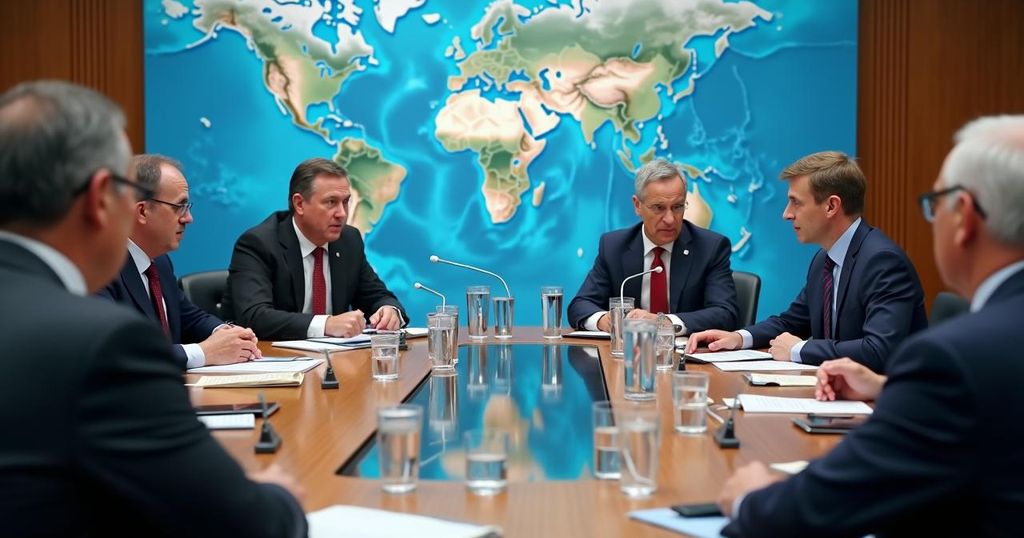As COP29 approaches, hosts in Azerbaijan urge countries to avoid blaming each other for climate change and instead focus on collaborative solutions. President Ilham Aliyev calls for constructive engagement, while COP29 president Mukhtar Babayev stresses the need for decisive negotiations on climate finance, which is crucial for developing nations. Current financial commitments expire next year, and discussions continue regarding a new agreement amid conflicting views on contributions from wealthier nations.
The hosts of the upcoming UN climate summit, COP29, emphasized the urgent need to unite in addressing climate change rather than allocating blame among nations. With just one month remaining before the conference commences in Azerbaijan, the global community continues to grapple with disagreements over a new financial agreement aimed at providing significant funding to developing nations. In a pre-COP meeting in Baku, Azerbaijan’s President Ilham Aliyev appealed for constructive dialogue and cooperation among countries. He highlighted the necessity of putting aside differences and focusing on common objectives, stating, “We cannot afford to waste time on defining who is guilty for global warming, or who caused more environmental harm.” COP29 president Mukhtar Babayev, who also serves as Azerbaijan’s ecology minister, reiterated that a more robust effort is required from negotiators to secure a favorable outcome. He stressed the importance of not postponing critical decisions until the summit itself. Currently, wealthier nations that historically contribute more to climate change have committed to offering $100 billion annually in climate finance to assist developing nations in mitigating emissions and adapting to future climate challenges. This initial agreement will expire next year, and COP29 is expected to establish a revised, more substantial commitment. There are proposals on the table exceeding $1 trillion; however, donor nations are hesitant to specify their contributions, particularly in relation to including nations like China, which they do not believe should be exempt from financial responsibilities. Despite the lack of progress in prior negotiations, Babayev mentioned there are indications of potential agreement on certain principles. He urged participants to take proactive responsibility in identifying concrete financial figures and to propose actionable solutions. Azerbaijan has indicated an increase in fossil fuel production amidst its hosting of the summit, conflicting with the global consensus on fossil fuel reduction reached at COP28 in the United Arab Emirates. UN climate chief Simon Stiell emphasized the need for COP29 to produce achievable results that translate prior pledges into tangible actions.
This article discusses the lead-up to COP29, a pivotal UN climate summit set to take place in Azerbaijan. The conference aims to address pressing climate issues, including the financing required for developing nations to combat climate change. Divergence among nations regarding financial commitments, particularly the obligations of historically polluting countries versus developing nations, remains a significant challenge as the summit approaches. Azerbaijan’s dual role as a fossil fuel producer and host country raises questions about its commitment to global environmental goals, further complicating negotiations.
In conclusion, the COP29 summit represents a critical juncture in global climate diplomacy, wherein participants must move past blaming one another and focus on achieving actionable financial commitments. As nations prepare for the summit, the consensus on responsibility-sharing and funding mechanisms will be vital for creating effective strategies to address the climate crisis. The urgency for collaboration supersedes individual national interests, emphasizing the collective fight against climate change.
Original Source: www.france24.com







